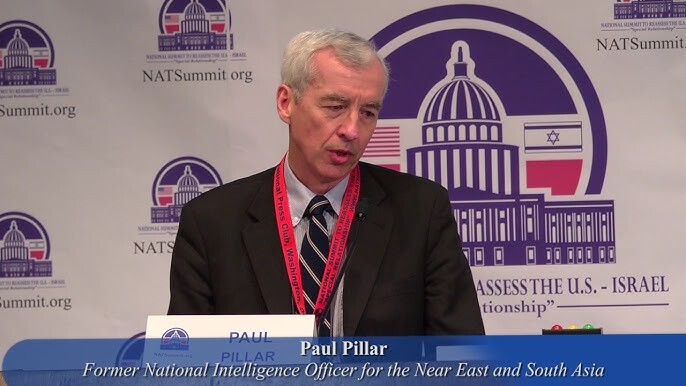
TABNAK– Professor Paul Pillar, who was CIA intelligence analyst for 28 years, says the Biden administration has been continuing most of the sanctions on Iran, and Trump will not want to be seen as softer than Biden has been on Iran.
“The one possible hope that Trump may move toward a more constructive policy that includes meaningful negotiation is based on his desire to claim--as he did in his first term about trade, for example--that he can reach a "better deal" than his Democratic predecessor could,” Pillar told Tabnak News Agency.
Following is the full text of the interview.
Q: In your opinion, what was the main reason for Trump's victory and Harris' defeat in the US presidential election?
A: As always, there is never any single reason for such an outcome, but I would cite two general factors. One was Harris's inability to escape any of the negative feelings in the electorate--about the economy, or immigration, or anything else--toward the incumbent Biden administration. There probably were many issues on which Harris would take a different direction than Biden, but as his vice president she did not feel free to break openly with him. The other factor was, to put it simply, that lying works. Trump based his campaign on a flurry of falsehoods, and he got many people to believe him because of the fractured way in which Americans get their information. Many people get it exclusively from channels in mass media or social media that have a partisan slant and do not call into question Trump's lies. A substantial proportion of the population, for example, still believes Trump's lie about the 2020 election.
Q: Can it be said that American society has moved from globalization and immigration policies and liberal foreign policy towards a conservative policy in the domestic and foreign policies? If so, what is the future of the Democratic Party?
A: There certainly has been a shift away from support for free trade and globalization. This is not just a Republican Party thing; the Biden administration has been making statements on economic policy and trade that sound hostile to globalization. As for immigration, there always has been a xenophobic streak in American politics, but the success of Trump and the Republicans in generating and exploiting fears about immigrants means no politician can afford to appear soft on the issue. The Democratic Party will continue as a left-of-center major party. It should be able to regain some of the working class vote after the economic failures of a second Trump administration become apparent. That's assuming that the party will still be allowed to compete in free and fair elections after four more years of Trump and his authoritarian tendencies.
Q: Some believe that Trump will continue the policy of maximum pressure against Iran in his second term as US president. What is your assessment?
A: A continuation of maximum pressure will be Trump's immediate inclination. Sounding tough on Iran will always be good for an applause line, and Trump is more concerned about applause lines than about effective policies. The Biden administration has been continuing most of the sanctions on Iran, and Trump will not want to be seen as softer than Biden has been on Iran. The one possible hope that Trump may move toward a more constructive policy that includes meaningful negotiation is based on his desire to claim--as he did in his first term about trade, for example--that he can reach a "better deal" than his Democratic predecessor could.
Q: If nuclear negotiations begin, will Trump separate the Iranian nuclear issue from regional politics and be willing to negotiate only on the nuclear issue?
A: The Biden administration seemed inclined to widen negotiations to cover regional issues, and I doubt that Trump would be any less inclined to do so. Covering those issues in addition to nuclear matters would be part of the basis for Trump to claim that he had reached a "better deal."
Q: What will Trump's foreign policy be towards China? Will we see an escalation of the trade war?
A: Everything that Trump has said during the campaign about trade, tariffs, and China makes an escalated trade war almost certain. Some measures would require action by Congress, but other things he can do by executive action.
Q: What will Trump's foreign policy be towards the Ukraine crisis?
A: Trump's attraction to Vladimir Putin is well established, even though the exact reasons for it have not been fully investigated. Trump will push Ukraine to accept a peace agreement that involves surrender of Ukrainian territory that Russia has captured. He may withhold some U.S. arms shipments as a way of pressuring Ukraine to accept such an agreement.